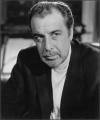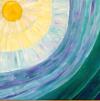Watch
The Immortal Story

The Immortal Story
The Immortal Story
1968
Drama
TV Movie
58m
The Portuguese colony of Macao in the 19th century. Mr. Clay is a very rich merchant and the subject of town gossip... (imdb)
Directed by:
Orson WellesHis father was a well-to-do inventor, his mother a beautiful concert pianist; Orson Welles was gifted in many arts (magic, piano, painting) as a child. In 1931 he married, directed his first short, and appeared on radio for the first time. His first film to be seen by the public was Citizen Kane (1941), a commercial failure losing RKO $150,000, but regarded by many as the best film ever made. Many of his next films were commercial failures and he exiled himself to Europe in 1948.

Writers:
Orson WellesHis father was a well-to-do inventor, his mother a beautiful concert pianist; Orson Welles was gifted in many arts (magic, piano, painting) as a child. In 1931 he married, directed his first short, and appeared on radio for the first time. His first film to be seen by the public was Citizen Kane (1941), a commercial failure losing RKO $150,000, but regarded by many as the best film ever made. Many of his next films were commercial failures and he exiled himself to Europe in 1948.

Starring:
Jeanne MoreauMoreau made her theatrical debut in 1947, and established herself as one of the leading actresses of the Comédie-Française. She began playing small roles in films in 1949 and eventually achieved prominence as the star of Lift to the Scaffold (1958), directed by Louis Malle and Jules et Jim (1962), directed by François Truffaut. Most prolific during the 1960s, Moreau continues to appear in films to the present day. (Wikipedia)

His father was a well-to-do inventor, his mother a beautiful concert pianist; Orson Welles was gifted in many arts (magic, piano, painting) as a child. In 1931 he married, directed his first short, and appeared on radio for the first time. His first film to be seen by the public was Citizen Kane (1941), a commercial failure losing RKO $150,000, but regarded by many as the best film ever made. Many of his next films were commercial failures and he exiled himself to Europe in 1948.

Ratings & Reviews
Cast & Info
Directed by:
Orson WellesHis father was a well-to-do inventor, his mother a beautiful concert pianist; Orson Welles was gifted in many arts (magic, piano, painting) as a child. In 1931 he married, directed his first short, and appeared on radio for the first time. His first film to be seen by the public was Citizen Kane (1941), a commercial failure losing RKO $150,000, but regarded by many as the best film ever made. Many of his next films were commercial failures and he exiled himself to Europe in 1948.

Writers:
Orson WellesHis father was a well-to-do inventor, his mother a beautiful concert pianist; Orson Welles was gifted in many arts (magic, piano, painting) as a child. In 1931 he married, directed his first short, and appeared on radio for the first time. His first film to be seen by the public was Citizen Kane (1941), a commercial failure losing RKO $150,000, but regarded by many as the best film ever made. Many of his next films were commercial failures and he exiled himself to Europe in 1948.

Starring:
Jeanne MoreauMoreau made her theatrical debut in 1947, and established herself as one of the leading actresses of the Comédie-Française. She began playing small roles in films in 1949 and eventually achieved prominence as the star of Lift to the Scaffold (1958), directed by Louis Malle and Jules et Jim (1962), directed by François Truffaut. Most prolific during the 1960s, Moreau continues to appear in films to the present day. (Wikipedia)

His father was a well-to-do inventor, his mother a beautiful concert pianist; Orson Welles was gifted in many arts (magic, piano, painting) as a child. In 1931 he married, directed his first short, and appeared on radio for the first time. His first film to be seen by the public was Citizen Kane (1941), a commercial failure losing RKO $150,000, but regarded by many as the best film ever made. Many of his next films were commercial failures and he exiled himself to Europe in 1948.

Loading ...
Similar Titles
Loading ...
Statistics
Loading ...
Trailer
Loading ...
























